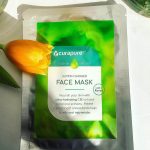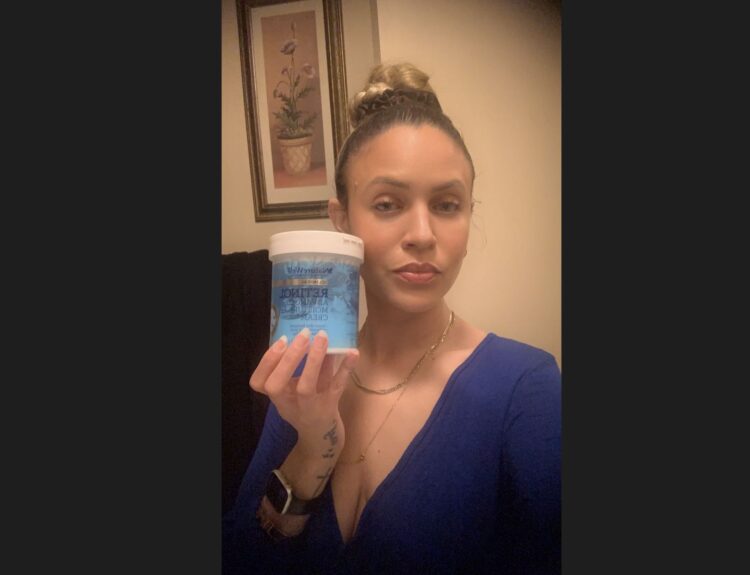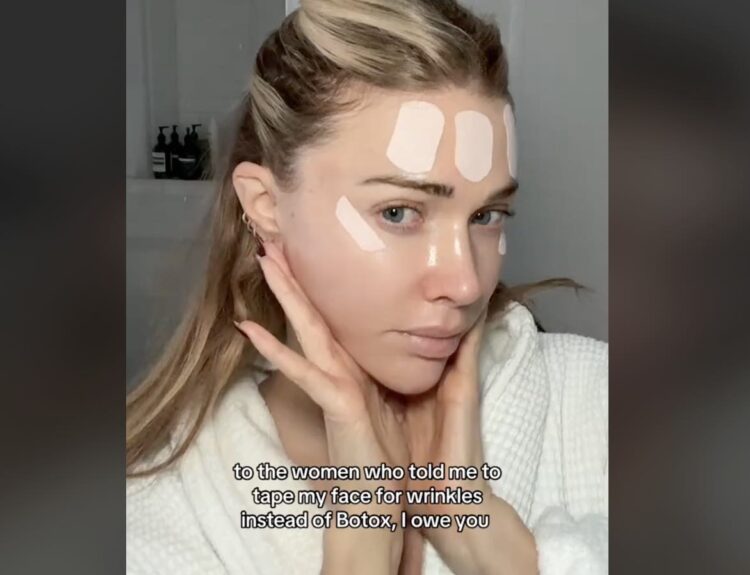Our Interview with Erin Jewell, Licensed Esthetician
Knowing your skin is imperative in knowing how to treat your skin, but how do you know what type of skin that you have? We ask you on instagram, what are your top skin care questions? And then we asked the expert, Erin Jewell- licensed master esthetician.
Here are your important skin care questions answered.
1. How do I find out my skin type?
There are seven basic skin types: normal, oily, dry/dehydrated, combination, acne-prone, sensitive and mature. Learn how to identify and care for yours below.
Normal
How to Tell: You don’t experience many breakouts. Your skin doesn’t tend to react negatively to new products or weather changes. You don’t feel like you need to constantly moisturize or blot oil from your face all day long. Your skin is firm, with minimal fine lines and wrinkles.
Oily
How to Tell: Your skin always seems to be glowing. You’re likely no stranger to blotting sheets or mattifying powders. You might find that makeup and skin care products don’t always stay put like you’d want them to.
Dry/Dehydrated
How to Tell: These are different but they have very similar symptoms.
Here’s how to identify them in your skin:
- Dryness is caused by a lack of oil in the skin. Symptoms include flakiness, sensitivity, itchiness and cracks. It may be caused by lifestyle and environmental factors or a chronic condition (in case of eczema or related conditions).
- Dehydration is the result of your skin not retaining enough moisture. Your skin may feel tight, have a papery appearance or show small, fine lines when your skin is pinched together.
Combination
How to Tell: If you’re having trouble figuring out what type of skin you have, it’s likely combination. Is your skin dry in certain areas, while oily in others? Combination skin is most easily defined by an oily T-zone (the strip across the forehead and the line down the nose) and dry or normal skin on the rest of the face.
Acne-Prone Skin
How to Tell: If you get frequent breakouts (or ones that just never seem to go away), you likely have acne-prone skin. This means that your pores tend to clog easily, making you more susceptible to whiteheads, blackheads or pustules than other skin types. You can have oily or dry skin and be prone to acne.
Sensitive
How to Tell: Sensitive skin might be caused by allergies or environmental factors Signs of this skin type include:
- Skin that flushes easily
- Frequent rashes and bumps
- Stinging or burning after using a skin care product
- Negative reaction to fragrance
- Patches of dry, flaky, irritated skin
Mature
How to Tell: While not everyone’s skin ages at the same pace, the signs are fairly universal. You might notice a wrinkle here and there or more dryness than in your younger years. For more mature skin, you may notice sagging, dark spots, dullness and dehydration.
2. If I have sensitive skin, what ingredients should I avoid?
-Fragrance
An artificial fragrance could contain 200 or more different chemical or botanical components, and your skin could react to any one of them.
-Preservatives
Preservatives are necessary for keeping any product that contains water fresh and stable,Some preservatives, like parabens, while not considered harmful to health, can cause an allergic reaction in certain people. Parabens are more likely to irritate those who already have skin issues. Another preservative to look for in your cosmetics and skin products is methylisothiazolinone, which is a high-hazard allergen according to the Environmental Working Group’s Skin Deep database.
-Botanical extracts and essential oils
Just because a product is marked “natural” or “organic” doesn’t mean it won’t cause a reaction on sensitive skin. Products that are considered ‘natural’ often contain ingredients that may be unusual or untested. poison ivy is organic but you won’t find me using it on my skin…Plant-based ingredients like citrus fruit extracts and mint can cause irritation if it’s a primary ingredient.
-Sulfates
Ingredients like sodium laureth sulfate and sodium laurel sulfate can strip the skin of its natural oils—These are cleansing agents that help create a rich, foaming lather, They can be too harsh for many people drying out skin and contributing to rashes and blemishes.
-Harsh exfoliants
Exfoliation is important for all skin types, but it can be tricky to choose the right type for sensitive skin I recommend to opt for an exfoliant with fruit enzymes as opposed to a physical scrub. Using a glycolic wash once or twice per week will also keep skin properly exfoliated without irritating it.
3. What ingredients should I look for in a sunscreen?
The most common sunscreens on the market contain chemical filters. These include a combination of the following active ingredients: oxybenzone, avobenzone, octisalate, octocrylene, homosalate and octinoxate. Mineral sunscreens use zinc oxide and titanium dioxide. Should be spf 30 or higher.
4. How often should I exfoliate?
Two to three times a week for normal and combination skin, and once a week for sensitive skin.
5. How do I know if I am over exfoliating?
Exfoliating every day can strip the skin of its natural oils, which can cause irritation because you’re removing the top layer of skin before it can heal.
Redness, irritation, dryness, flakiness, increased oil production and Acne are all signs your over exfoliating.
6. What’s the best way to get rid of blackheads?
Blackheads are just an oxidized mix of oil and dead skin cells that are sitting in pores — the exposure to air is what causes them to oxidize and turn black.
Having them is not a sign that you’re dirty, so don’t cause more damage by being rough with your skin and scrubbing really hard.
Salicylic acid is a great option for dissolving peaky blackheads, If that isn’t helping leave it to the pros and book a facial treatment :).
7. What’s the best way to get rid of whiteheads?
A clay mask helps clear clogged pores of excess oil and dirt, which are often the culprits behind whiteheads.
Instead of popping your zit or running the risk of spreading bacteria or damaging your skin throw a patch on the spot. An acne patch can help dry out your pimple and keep you from picking at it.
Treat the spot with 2% salicylic acid to dry it up.
Schedule a facial treatment with an esthetician.
8. What skincare ingredients should I never mix together?
Some active ingredients used in skincare products can act as irritants when mixed with others, particularly in individuals with sensitive skin…below is a list Skincare Ingredients You Should Never Mix
-Benzoyl peroxide and retinol
BPO and retinoids should not be used together since they deactivate each other, rendering the retinoid ineffective.
-Vitamin C and AHAs
When vitamin C and AHAs (like glycolic, lactic, or malic acid) are used in conjunction, they cancel out the effects or can be irritating on the skin. Vitamin C acts as an antioxidant and AHA chemically exfoliates, so together these acids can destabilize each other.
-Vitamin B3 (Niacinamide) and Vitamin C
Used separately, both ingredients are great for treating blemish-prone and scarred skin, but combining them is a recipe for disaster. Niacinamide cancels out all of the good properties of vitamin C and turns it into a substance that causes redness and can trigger acne breakouts.
-Vitamin C and Retinol
Vitamin C can become inactive with small variations in a solution’s pH, like when you add retinol into the mix. I like to use my vitamin C in the am and my retinol at night for best results.
-Benzoyl Peroxide (BPO) and Hydroquinone:
Hydroquinone, is a skin lightening agent that’s used to reduce pigment in your skin, and when you toss these two very potent ‘bleaching’ compounds together, it can cause hypopigmentation.
9. What alcohols are okay in skincare products?
Some of the most common examples of fatty alcohols used in skincare products include: cetearyl alcohol, cetyl alcohol and isostearyl alcohol.
Fatty alcohols have emollient and occlusive characteristics. These ingredients can actually help to keep the skin hydrated, making them beneficial in many types of topical products.
10. What ingredients should my products never have?
Well that’s a tough one as it’s almost impossible to find products that are free of all “bad Ingredients”.
My personal list includes Sodium lauryl sulfate, Aminophenol, Diaminobenzene, Phenylenediamine (Coal Tar) Fragrance, talc, Synthetic colors e.g., D&C Red 27 or FD&C blue 1).
About
Author
-

Ana Lefebvre is a journalist, news personality, and digital marketing expert with 18 years of experience. As a sociologist and CMO, she specializes in marketing, media, branding, and human behavior.
View all posts






